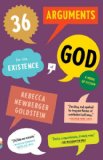Summary | Excerpt | Reading Guide | Reviews | Beyond the book | Read-Alikes | Genres & Themes | Author Bio

From the book jacket:
A million-dollar painting by Marc
Chagall is stolen from a museum. The
unlikely thief is Benjamin Ziskind, a
thirty-year-old quiz-show writer. As
Benjamin and his twin sister try to evade
the police, they find themselves recalling
their dead parents - the father who lost a
leg in Vietnam, the mother who created
children's books - and their stories about
trust, loss, and betrayal.
What is true, what is fake, what does it
mean? Eighty years before the theft, these
questions haunted Chagall and the enigmatic
Yiddish fabulist Der Nister ("The Hidden
One"), teachers at a school for Jewish
orphans. Both the painting and the questions
will travel through time to shape the
Ziskinds' futures. With astonishing grace
and simplicity, Dara Horn interweaves a real
art heist, history, biography, theology, and
Yiddish literature. Richly satisfying,
utterly unique, her novel opens the door to
"the world to come" - not life after death,
but the world we create through our actions
right now.
Comment: Some books are amusing
enough to read at the time, but lacking true
substance, quickly fade from my mind. It's
been some weeks since I finished The
World to Come and I can safely say that
this is not going to be one of those books!
Dara Horn (author of In the Image,
2002) has produced a real gem of a book with
a wealth of plots and sub-plots, packed full
with everything from Yiddish folklore to
Soviet politics. However, it is not a book
that all will appreciate - I'm thinking here
of readers who like their books to end
neatly with all plot elements tidied up and
put away. This is not such a book - without
spoiling the plot, all I can say is the
ending is in keeping with the Chagall
painting at the center of the story!
Booklist and Publishers Weekly both give it
starred reviews. Library Journal describes
it as "intelligent, compelling literary
fiction", while Kirkus Reviews complains
that the over reliance on symbolism becomes
unwieldy and the ending is 'confusing and
corny' but nonetheless concludes that it is
"an engrossing adventure, in spite of its
flaws."
"A deeply satisfying literary mystery and a
funny - sad meditation on how the past
haunts the present - and how we haunt the
future." - Time Magazine.
![]() This review
first ran in the January 18, 2006
issue of BookBrowse Recommends.
This review
first ran in the January 18, 2006
issue of BookBrowse Recommends.

If you liked The World To Come, try these:

36 Arguments for the Existence of God
by Rebecca Goldstein
Published 2011
A hilarious, heartbreaking, and intellectually captivating novel about the rapture and torments of religious experience in all its variety.

by Geraldine Brooks
Published 2009
From the Pulitzer Prize–winning author of March, the journey of a rare illuminated manuscript through centuries of exile and war.
Your guide toexceptional books
BookBrowse seeks out and recommends the best in contemporary fiction and nonfiction—books that not only engage and entertain but also deepen our understanding of ourselves and the world around us.